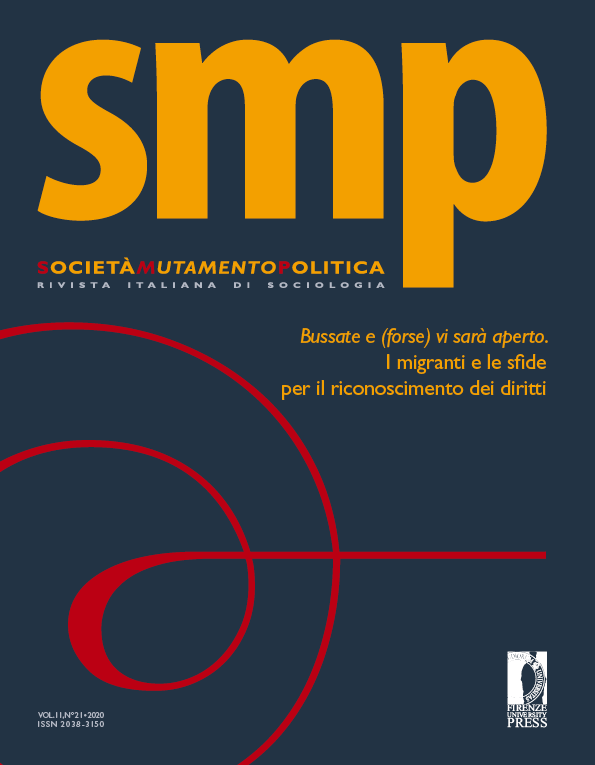Published 2020-07-31
Keywords
- Intellectual activism,
- new political economy of cities,
- social innovation,
- triple helix model,
- urban governance
How to Cite
Abstract
The article deepens the city-university relationship from the perspective of social innovation initiatives. It introduces the critical dimension of the new political economy of cities into the triple helix analytical model to help understand the quality of interactions between the actors involved in those initiatives. To do so, the study investigates how the triple helix works in the field of social innovation: it adopts a comparative approach and reconstructs some urban initiatives promoted by university and other urban actors in the cities of Barcelona, Milan and Venice. This study highlights a new model of action that integrates those presented by rhetoric, i.e., university institutions as key actors in local development processes. The process of interaction between universities and cities is now seeing academics—and not just universities—at the forefront of the search for contexts to transform fields of research into spaces of social intervention and areas of political action, giving a transformative orientation to research. For many years, in fact, academics have cooled their heels in university departments, waiting for the social demand for expert knowledge to offer to the others actors (e.g., industry, government, and civil society); and they are now leaving those departments to participate in the social production of knowledge. On the one hand, this new relationship between university and city confirms the analysis of the influence of universities on the factors of context and agency, while on the other it contrasts with the narrative of the entrepreneurial and commercial university that has been assiduously built over the last twenty years, often by the academic world itself. Instead, a population of academics now arises, who exploit the strength of weak ties in university organization and the hitherto weak institutional orientation of universities towards social innovation initiatives, to guide the universities’ third mission in the field of social and political action.


